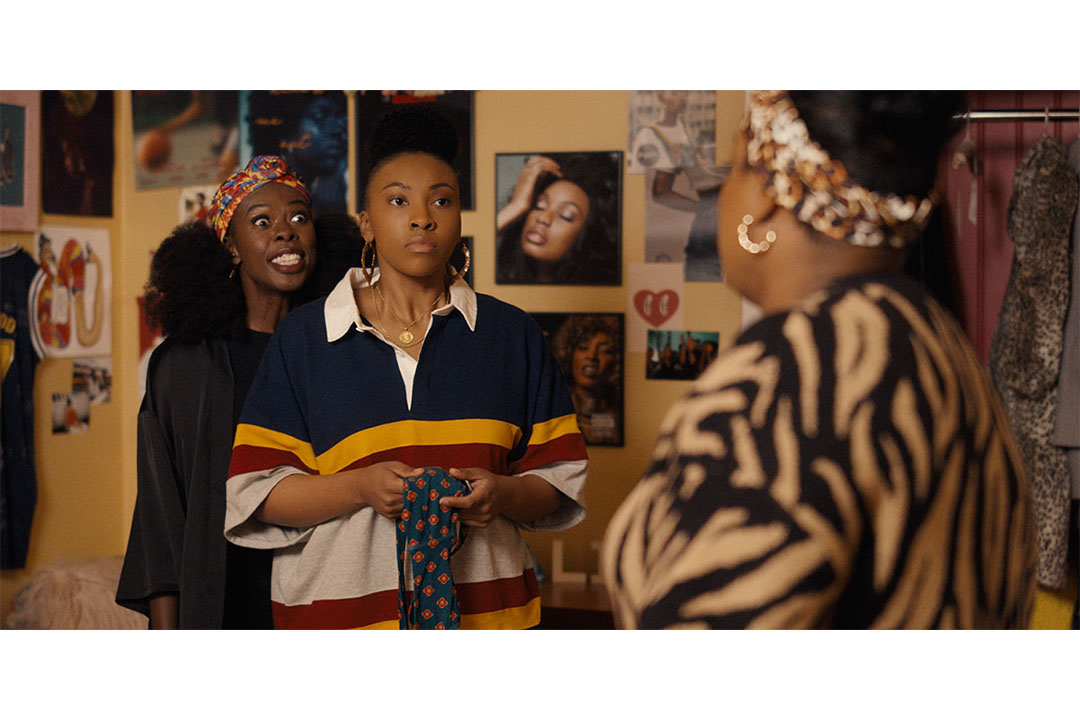Content warning: This article mentions instances of anti-Black violence.
Bria Mack Gets a Life and gives us life too! Director Sasha Leigh Henry delights audiences with her second Toronto International Film Festival selection after Sinking Ship (2020) and brings young adulthood home to a Torontonian setting.
Bria Mack Gets a Life premiered at TIFF’s Primetime Series program on September 10 and will soon be available on Crave. The quick, biting, contemporary humour is always dialled to a 10 while the audience is brought along on an all-too-familiar story of trying to find your footing after university. Henry’s work, which largely deals with Black young adulthood, parallels the work of her contemporaries, such as Insecure’s Issa Rae and comedian Ziwe.
The series follows the story of a young Black woman who is seeking reprieve post-graduation but is instead thrown immediately into the world of nine-to-five work and out-of-touch colleagues. Bria, the protagonist, is the type of character most audience members won’t have trouble identifying with. Children of immigrants, burnt-out gifted kids, cynical university students, and everyone who has ever been the only Black girl in the office; she embodies them all. We root for her, groan for her, and most of all, laugh with her. Actress Malaika Hennie-Hamadi truly does bring the jaded Bria to life.
Throughout the series, a mischievous narrator named “Black Attack” voiced by Hannan Younis, represents her inner dialogue, which is integrated in a way that felt so natural. It’s possible to suspend disbelief that Bria is a fictional character because the series presents something so close to our reality on the other side of the screen.
The mundane but comical moments in Bria’s life reflect the irresponsibility and raunchiness that make young adulthood what it is. Bria quietly regrets all the money spent on Tim Horton’s ice capps one moment, and she debates the politics of having sex on home turf or at a guy’s house the next.
I absolutely loved the cutaway segments that further delve into Bria’s subconscious. However, there was one particular moment that didn’t land well with me, nor with the rest of the audience: when Black Attack directly compares Bria’s hair being touched by a colleague and the lynching of Emmett Till. It’s clear that this was meant to be a joke, but rather than laughter, there was an uncomfortable hush over the TIFF audience. As a white woman, I cannot speak on how Black writers engaged with that moment in history or how members of the Black community interpreted the comparison, but there was a noticeable change in the atmosphere of the theatre. Luckily, the series did bounce back to other jokes fairly quickly, but an uneasy feeling did briefly linger.
“Relatable” is a word that’s been used to death by corporations trying to attract a young market — but Bria Mack Gets a Life has genuinely earned that title. What makes Bria such an excellent character is that she is the perfect vessel for the audience’s projection. With an abundance of wit, she fights for academic validation, goes through romantic mishaps, and deals with the culture shock of the job market. Her character takes the shape of any number of young adult experiences, and we find the same deep camaraderie in her as in our closest friends.
As a 20-year-old, it’s unbelievably comforting to see that I’m not falling behind. Everyone is figuring it out as we go along, and the incompleteness of our journey is its beauty.
Bria is a symbol of this generation’s collective aspirations and fears while also feeling personal to the individual viewer. Like us, she is in a constant state of flux and growth. What comes next after the sharp dropoff after graduation? And what if you’re too tired for anything to be next?
Who is Bria Mack if not valedictorian? And who are we?
Editor’s note (September 25): An earlier version of this article incorrectly indicated that Bria Mack Gets a Life is a movie, instead of a TV series.



No comments to display.